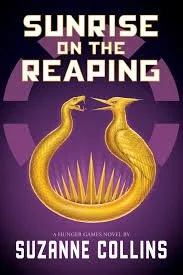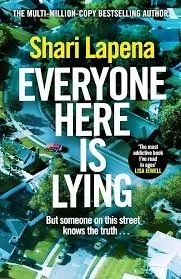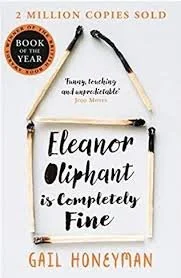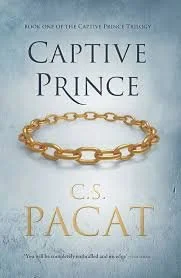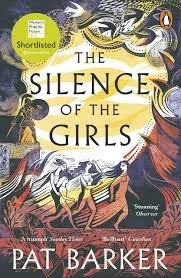Rose Reviews: Summer Reads ☀️📚
Sunrise on the Reaping – Suzanne Collins
⭐⭐⭐⭐⭐
I read this while in Japan, not expecting much more than a pulpy holiday read – contrived YA angst and some gratuitous violence thrown in for good measure. While Suzanne delivered on that, it was actually… really good?
I read The Hunger Games books when I was a pre-teen (the prime demographic) and remember enjoying them. They didn’t leave much of an impression on me for some reason – the writing was decent, but I couldn’t tell you much about the characters, never mind what happens in the third book (revolution, or something?)
But then my friend and I watched The Ballad of Songbirds and Snakes when it came out at the cinema. We enjoyed it way more than we were expecting to - it felt gritty and character-driven, but not as brutal as HG’s Battle Royale predecessor - even my friend, who’s famously averse to violence, had a fun time with it. 18 months later, it only took some online hype about the new HG book - yet another prequel – and I was sold.
I never appreciated before how tight Suzanne’s writing is. It’s punchy and atmospheric, descriptive without being pretentious - personally my favourite kind of writing style. The main character, Haymitch (fan favourite from the original series)’s internal narration is convincingly that of a teenage boy. He’s a typical hero in some ways, not dissimilar to Katniss, but refreshingly goofier – and, in the book’s words, less lucky. It’s fun as it is bleak.
It’s a pacey romp that I devoured in about a week. I couldn’t put it down, and I can’t remember the last time I felt that way about a book.
Everyone Here is Lying – Shari Lapena
⭐⭐⭐⭐
Following on from the surprisingly good Hunger Games cash-grab – I mean, prequel – was a book I received as a gift at some point and had been sitting on my shelf for months. Given that it has a cover and premise generic enough for an airport bookshop, I wasn’t in a rush to pick it up. That is, until I’d run out of books to take to the beach this summer.
I’m not particularly into crime novels, which probably helped land all the twists and turns the story takes. This book genuinely surprised and intrigued me. The writing style is far more minimalist than Suzanne Collins’, the characters 2D placeholders for common murder mystery tropes. But I think that’s deliberate – this story is designed to be read quickly by the pool, a holiday read if ever there was. I enjoyed it more than I thought, and I found myself needing to know who the killer was. I was doubtful of the garish yellow sticker declaring it as a bestseller, but having read it, I can see why it is.
Eleanor Oliphant is Completely Fine – Gail Honeyman
⭐⭐⭐⭐⭐
I borrowed this book thinking that, because of the title, it was going to be some fluffy chic-lit, which isn’t my cup of tea. What I got instead was not that at all.
This is a laugh-out-loud (or, more accurately, exhale through the nose), sensitive story that was both heartwarming and heartbreaking in equal measure. The plot is minimal, so I won’t go into too much detail. It follows a possibly autistic/neurodivergent woman as she navigates life in her thirties. She’s painfully lonely and seeking connection but is also closed off from it, turning her nose up at others as a defence mechanism. Eleanor is the true definition of ‘kooky’, with the perspective of an alien observing all the weird things humans do with a mixture of fascination and scorn (and she makes a lot of good points).
Her narration is hilarious, and the characters and story felt three dimensional. Eleanor is easy to relate to and emphasise with. This is a British dramedy (Fleabag comes to mind) in novel form – I loved it.
The Captive Prince Trilogy – C.S Pacat
⭐⭐⭐
I didn’t realise this one was so controversial until I’d already succumbed to the (well-meaning?) algorithm and downloaded it on my Kindle. I have a soft spot for gay romances, what can I say?
The Captive Prince is a trilogy of three short books that feel more like one continuous novel (I do think this would have worked better as one book, but hey – maybe it gave the author a chance to pivot after the first one). I enjoyed parts of this story, and I didn’t enjoy other parts. The first book is a bit perverse and leans into shock factor, but the following books become more like a traditional historical romance – slow burn, war strategy and court politics – which was more palatable, but admittedly much more boring.
That said, the author does take her time building the tension between the two main characters, with satisfying payoff. Laurent, the love interest, is morally grey (read: arsehole) and I enjoyed the way Pacat developed his motivations and convincing competence as a person throughout the series.
The controversies surrounding this trilogy, are, I think, mostly related to the first book, which launches straight into themes of slavery and abuse. It seemed to me like Pacat was drawing from history – for example, the Romans and ancient Greeks – and was trying to show a brutal, hedonistic side to human society for the characters to navigate, rather than condoning or fetishising these things for the story’s sake. That said, I can easily see why people would interpret it that way and throw the book across the room in disgust.
Spoilers ahead, I guess - something that did annoy me was the trope that appears in gay romance far too often for my liking. This is where it’s revealed that one of the characters was abused, usually as a child, a point which becomes foundational to their character and conflict. I don’t enjoy the correlation many authors imply – intentionally or not – between being abused and being gay. Can we not? Please?
This is a funny one. I’m not sure whether I would recommend The Captive Prince Trilogy – the slow burn romance has good payoff, the writing is very measured and clean, but the topics perhaps aren’t handled as sensitively as they could be (at least in the first book). If nothing else, I liked the main characters and had fun reading the very divisive reviews on Goodreads.
Silence of the Girls – Pat Barker
⭐⭐⭐
My sister lent this one to me and was positively raving about it. It’s a ‘she-telling’ of the Iliad story from one of the female character’s – Briseis – perspective. I’ve read retellings of the Iliad before, and I liked that this one was grittier than other versions I’ve read. Being Briseis’ perspective, it focusses on the horrors of being a ‘conquered woman’ and essentially a trophy for the Greek army to pass around (*shudder*), a fun little reminder how grateful I am to be born as a woman on this side of history.
Not that this is historical, exactly. I like stories that are pretty grounded but have a thread of the fantastical or supernatural running through them, which is what this story is – it feels realistic apart from the fact that Achilles’ mother is literally a sea nymph and he’s a demigod. And speaking of, he’s an absolute meathead in this version, and a bit of a weirdo. Patroclus, meanwhile, continues to be a sweetie, as he is in all the retellings I’ve read so far.
I liked the narration of this – metaphorical but not flowery, with some really effective imagery woven throughout. The dialogue is snappy and authentic. But despite that, I lost interest about halfway through. Maybe because I already knew the story of the Iliad, the ending was a foregone conclusion and I couldn’t bring myself to care. A few more sympathetic characters (other than Briseis and Patroclus) might have helped me feel more invested.
My sister loved it, but Silence of the Girls left me feeling lukewarm. I probably won’t pick up the rest of the series (apparently the other books are really good, but I’m just not compelled).
There you have it – some fun reads to get stuck into 😊
